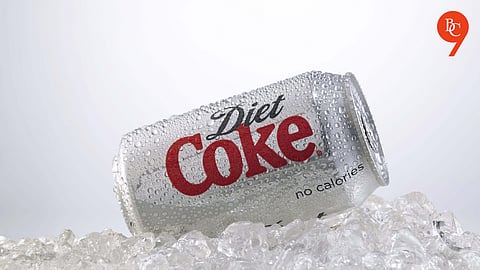

This trend—dubbed “Fridge Cigarette” on TikTok—evokes nostalgia and rebellion, offering pleasure minus calories. But is the zero-calorie allure of Diet Coke truly a healthier habit? Let’s unpack what science, nutritionists, and real-world data say.
The Appeal: Zero Sugar, Zero Calories
Diet Coke avoids sugar entirely, appealing to calorie-conscious consumers and those managing blood sugar.
It's marketed as an alternative to sugary sodas, often seen as a smarter everyday choice.
The Caveats: What Health Experts Warn About
1. Artificial Sweeteners and Metabolic Effects
Observational studies link diet soda consumption to metabolic syndrome, weight gain, and type 2 diabetes—with one analysis noting a 32% higher risk in users of artificially sweetened drinks
2. Heart and Stroke Risks
Drinking two or more diet sodas per day may raise the risk of stroke, dementia, and atrial fibrillation by around 20%.
3. Gut, Kidney, and Bone Health
Artificial sweeteners like saccharin and sucralose can disrupt gut microbiome balance.
High phosphorus content has been tied to chronic kidney disease risk .
Acids in diet sodas erode tooth enamel and may reduce bone density over time
4. Sugar Cravings and Weight Management
Sweet taste without calories may confuse hunger signaling, leading to increased cravings and potential weight gain.
So, Is Diet Coke Healthier?
Maybe—if used sparingly. Occasional consumption may beat high-sugar drinks but lacks nutrients and may carry other risks .
Too much? Regular, daily intake (especially 2+ servings daily) is linked in studies to increased risk of metabolic, cardiovascular, gut, kidney, and dental issues.
Smarter Alternatives to Try
Instead of Diet Coke, consider swapping to:
Sparkling or flavored water (unsweetened)
Unsweetened tea or coffee
Low-sugar mocktails (e.g., minty fruit-infused seltzer)
Kombucha or prebiotic sodas
These options offer hydration plus flavors, probiotics, or mild caffeine—without sweeteners or acids.
Diet Coke is not a health drink—but replacing sugary sodas with it can reduce sugar intake. Still, it isn’t free of health consequences. Moderate consumption is key, and healthier swaps should be part of a balanced lifestyle.
